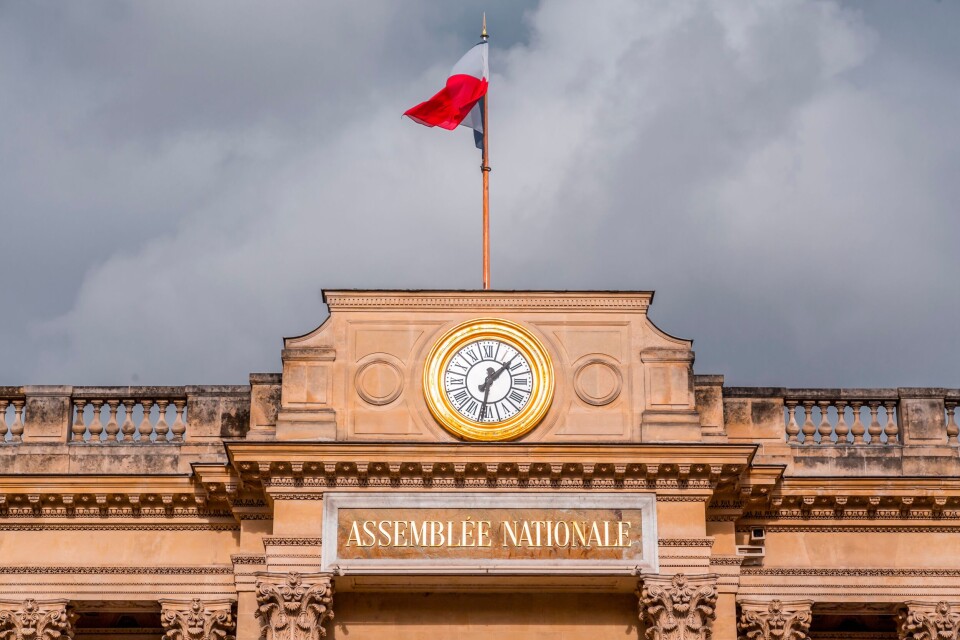-
White storks make strong return in France via nest ‘platforms’ and clipped wings
The Ligue pour la Protection des Oiseaux shares the conservation challenges in saving these birds from extinction
-
Hosting scheme in south-west France lets newcomers sample lifestyle
Households in nine Dordogne communes volunteer under Mes Nouveaux Voisins scheme
-
French boulangeries demand right for staff to work on May 1 so they can open
Artisan bakery owners can work but employees cannot, while certain industrial bakeries are allowed to remain open with workers
Inflation, climate, pensions: a tough ‘rentrée’ for French government
President Macron hopes for a peaceful return to work but the agenda is full of controversial issues

The environment, purchasing power and pension reform are among the key issues on the government’s agenda this rentrée.
Read more: What is France’s Assemblée nationale and how does it work?
Read more: France's nine measures to boost residents' spending power
Keeping inflation under control
President Macron is reportedly crossing his fingers for a peaceful return to work, believing that France has put in place enough measures to keep inflation under control and help people’s purchasing power.
In particular, energy price rises have been contained.
Even so, far-left party La France Insoumise says it will organise a big ‘spending power’ march in the coming weeks.
Pension reform is also set to create controversy.
Read more: Inflation: France will not see ‘double figure scenario’, says minister
Clarity on green measures
Sources close to the president say it will be a ‘green rentrée’, and the president has tasked the prime minister with setting out an agenda for measures that need to be taken to clarify to the public what will happen in months and years to come.
Consultation on wide-ranging reforms
A new group called the Conseil national de la refondation will hold discussions from September 8, bringing together the private, public and not-for-profit sectors with members of the public to discuss areas including school and health reform.
It is part of Mr Macron’s pledge to consult more, rather than imposing his own ideas.
It will cover issues from how to get to full employment to how France can become more independent in industrial production, food and defence, how to achieve carbon neutrality, and reform of public institutions.
The government promises its ideas will lead to concrete and budgeted plans.
Pension reforms restarted
Then the priority will be pension reform, with talks on this to be held with unions.
Reform plans had been well under way pre-2020 but were suspended due to the pandemic.
The government says it wants things to move quickly now, with the first measures in place by next summer.
Proposals include a gradual raising of the retirement age to 65 for most people, new ways of taking account of long or ‘difficult’ working lives, and a new minimum pension, for those who have paid in long enough for a ‘full rate’, of €1,100.
Removing many ‘special regimes’ to come closer to a universal pension system is another idea.
Opposition to higher retirement age
MPs’ debates are likely to be heated, with the left-wing Nupes group calling for retirement at age 60 and Rassemblement National’s Marine Le Pen saying she is firmly against people having to work to age 65.
Several leading unions are opposed to increasing the age. Sud and CGT have given notice of a strike on September 29.
Rethink unemployment benefit
Further reform of unemployment benefit will also be looked at and is expected to include measures making the rules more flexible at times when the economy is doing well and tougher when it is not.
It is planned to change how long people can claim for and to what extent payments should reduce as time goes on.
Related articles
Macron: ‘France is at the end of its age of abundance’
Ukraine, energy, pensions: Key points of Macron’s July 14 interview
9 changes for residents and second-home owners in France in September
























